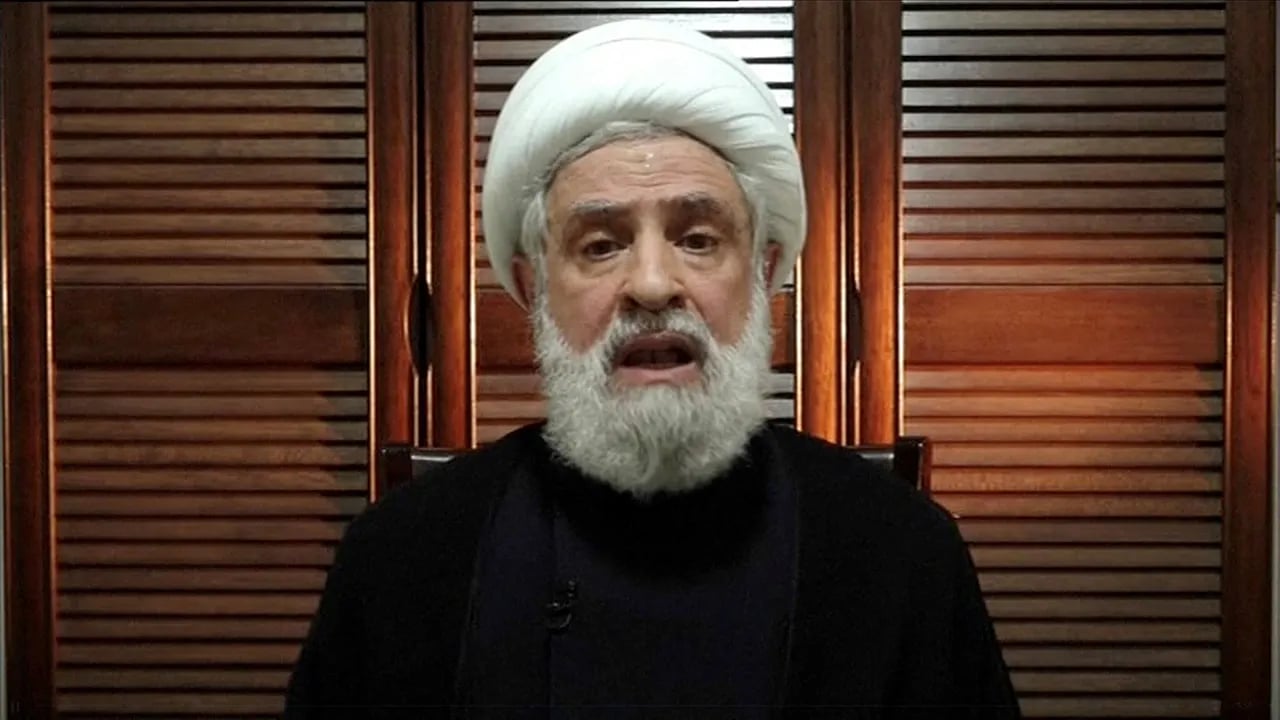With the ouster of Assad in Syria, Hezbollah chief reveals that the group has lost a crucial arms supply route from Iran.
The first public admission of the impact of the Syrian crisis on Iran's proxy was made.

With the fall of dictator Bashar al-Assad, Hezbollah lost its primary supply route from Iran through Syria, their leader admitted on Sunday.
The first public admission that the unrest in Syria had harmed Iran's proxy, which supported Assad and is currently battling Israel in Lebanon, was made. Through Syria, Iran supplied weapons to counter the Israeli campaign and arm Hezbollah in Lebanon.
In a televised address, Naim Qassem stated that although Hezbollah lost its military supply line through Syria in this phase, it is just a minor detail in the overall resistance.
"With the new regime, the supply line may return to normal, and we can always explore alternative options. The resistance is adaptable and can adjust accordingly," he stated.

The removal of Assad endangered Syria's relationship with Iran. HTS, the organization responsible for overthrowing Assad, expressed disappointment that Syria had become a "playground for Iran." Hezbollah had defended Assad against opposition groups.
With Assad's grip on power weakening, Hezbollah and Iran's military forces left Syria.
In October, Qassem became Hezbollah's new secretary general after Nasrallah, who had led the organization for three decades, was killed in Israeli airstrikes near Beirut. Despite Hezbollah and Iran having long supported Assad in Syria's civil war, which had been ongoing for 13 years, they were unable to provide assistance during the rapid capture of Damascus due to their depletion from the conflict with Israel.
Israel has seized the opportunity of Assad's downfall to destroy the Syrian army's strategic and chemical weapons through over 350 airstrikes across the country. Additionally, Israeli forces have entered the buffer zone separating them from Syria for the first time since 1973.


"We have no interest in a conflict with Syria. We will determine Israeli policy regarding Syria according to the reality on the ground," Prime Minister Benjamin Netanyahu stated on Sunday. He added that Israel would continue to strike "as necessary, in every arena and at all times" to prevent the rebuilding of Hezbollah.
The U.S. has been in direct contact with the leading rebel group in Syria, HTS, which was once an affiliate of al Qaeda, but Israel is cautious about the group's long-term intentions.
Despite the moderate appearance of rebel leaders, the latest developments in Syria are increasing the intensity of the threat and the immediate risks to the country have not disappeared, Israeli Defense Minister Israel Katz said on Sunday.
After Oct. 7, 2023, Hezbollah intensified its cross-border attacks on Israel in solidarity with Hamas, an Iranian-backed group. Despite Israeli airstrikes against Hezbollah operatives, a cease-fire has largely held since late November.
Qassem argued that his decision to adhere to the cease-fire did not signify the conclusion of Hezbollah's "resistance," but was crucial to "halt the aggression" of Israel in Lebanon.
politics
You might also like
- California enclave announces it will cooperate with immigration officials and the Trump administration.
- Danish lawmaker urges Trump to abandon Greenland acquisition plan.
- Now, the Dem who labeled Trump an "existential threat to democracy" is obstructing his nominees.
- The lawyer for Hegseth criticizes the "dubious and inaccurate" testimony of his ex-sister-in-law.
- The House GOP outlines a plan to improve the healthcare system, emphasizing its impact on national defense.



















